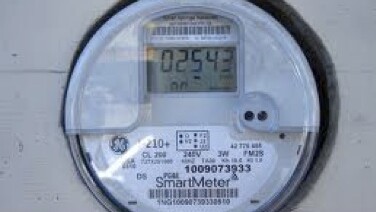€CO2 Management
The relevance and importance of smart electricity meters for climate change policy

A significant amount of the Austrian greenhouse gas emissions is caused by energy consumption in private households. In the action plan on energy efficiency the European Union has set the target of reducing private energy consumption by 20 per cent by 2020.
The aim of the overall project is to explore the potentials for CO2 reduction at the household level, and also the role smart meters could play to achieve this goal.
In the first subproject, a new device to collect, display, and transmit energy data on the household level based on an already existing digital electricity meter has been developed. Then the developed technical solution was tested in a one-year field test covering 280 households in three different regions. The test households were not only testing the opportunities offered by ongoing energy monitoring but were also offered to avail themselves of consulting services. Moreover, a micro emission-trading scheme was simulated for the test households during the trial period.
In the third and final phase we analyse the actual energy savings in the testing phase, socio-economic effects and consequences – ie privacy and data protection –, the user friendliness of the equipment used, the possible effects on user behaviour and the individual motives and reasons for energy-related behaviour. We recommend that the collected know-how should be reflected in the future development of the equipment.
Publications
Publications
- . (2014). Smart energy saving at home. ITA-Dossier no. 10en (July 2014; Author: Michael Ornetzeder). Wien. doi:10.1553/ita-doss-010enDOIDownloadRISENWBIB Abstract
-> 250 Austrian households were able to gain experience with smart meters in a year-long field trial.
-> On average, these households reduced their electricity consumption by around five per cent.
-> Smart metering, however, only led to a reduction in energy consumption when combined with comprehensive information and visualization.
-> Based on the field trial, recommendations were derived for the design of future programmes on ‘saving energy at home’. - . (2014). Intelligent Stromsparen im Haushalt. ITA-Dossier Nr. 10 (Juli 2014; Autor: Michael Ornetzeder). Wien. doi:10.1553/ita-doss-010DOIDownloadRISENWBIB Abstract
-> 250 Haushalte konnten in einem einjährigen Feldversuch Erfahrungen mit intelligenten Stromzählern – Smart Metering – sammeln.
-> Im Durchschnitt wurde dabei rund fünf Prozent weniger Strom verbraucht.
-> Smart Metering führt allerdings nur in Kombina- tion mit verständlichen Visualisierungen zu einer Verbrauchreduktion.
-> Aus dem Feldversuch wurden Empfehlungen für die Gestaltung von zukünftigen Programmen zum Thema „Stromsparen im Haushalt“ abgelei- tet.
Autor: Michael Ornetzeder - . (2013). Smart Metering im Testlauf. Ita-Newsfeed. Retrieved from http://www.oeaw.ac.at/ita/projekte/news/smart-metering-im-testlauf
- . (2013). €CO2-Management Sub 3, Sozioökonomische Begleitforschung, Synthesebericht (p. 10). Graz/Wien. Retrieved from https://epub.oeaw.ac.at/ita/ita-projektberichte/d38.pdf
Conference Papers/Speeches
Conference Papers/Speeches
-
11/04/2014
, Trondheim
Michael Ornetzeder:
Do we need smart meters to save energy?
Workshop on smart grids and the social sciences
Duration
08/2009 - 12/2012